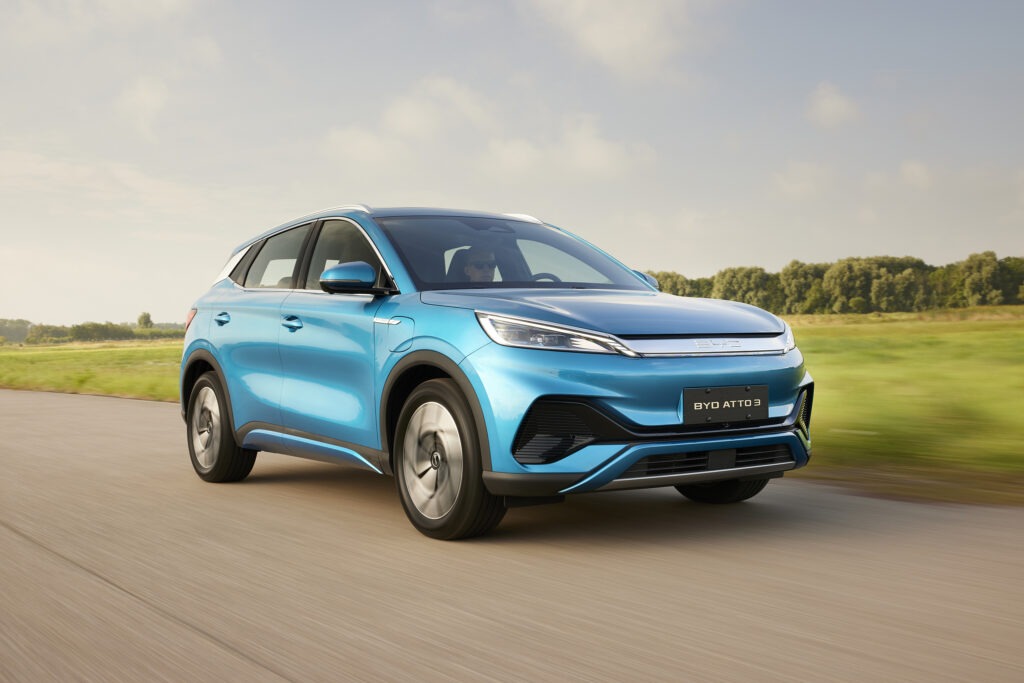Europe’s EV market makes gains in August as Tesla holds firm
19 October 2023

Europe’s electric vehicle (EV) market recorded its best month of growth in over two years as Tesla’s market domination continued. José Pontes, data director at EV-volumes.com, studies the impressive figures.
In August, the European market saw its highest growth rate for EVs since June 2021. Around 270,000 battery-electric vehicles (BEVs) and plug-in hybrids (PHEVs) were registered, equating to a 68% year-on-year increase.
However, this EV growth is set against a strong August for Europe’s entire automotive sector. Registrations across the continent for all passenger-car fuel types were up by 21%, as the industry continues to recover from the impact of COVID-19 and the supply-chain crisis.
EVs took a 30% market share in August, with BEVs holding 22% alone. This result brought the year-to-date share for EVs to 23%, with BEVs taking a 15% stake. In the competition between BEVs and PHEVs, the all-electric technology accounted for 75% of EV sales in August, against a yearly average of 67%.
It is clear that the momentum for EVs is coming from all-electric models. In August alone the powertrain technology saw registrations increase of 106%, its first three-digit growth rate since June 2021.
Tesla ahead of the pack
Tesla continued to dominate the European EV market, taking the top two spots in August. The Model Y spent a 10th-consecutive month at the top of the chart, with the midsize crossover gaining 21,824 registrations. Yet the BEV may have reached its peak, with sales for the rest of 2023 not expected to increase significantly over current volumes.
The Model Y’s biggest European markets included Germany (4,795 units), France (3,051 units), and the UK (2,313 units). However, other countries also posted four-digit results, such as Sweden (1,506 units), Norway (1,452), the Netherlands (1,231), and Belgium (1,187), confirming the Model Y’s popularity in Scandinavia and Benelux.
The Tesla Model 3 was next up, with 11,998 registrations helping it secure second place in the EV best-seller list. This was impressive, especially as the refreshed version will not be available on the European market until October. This could present a problem for the Model Y, with some sales cannibalisation occurring between the two models, depending on driver preference.
In third, and some way behind Tesla, was the Volkswagen (VW) ID.4, with 8,439 registrations. The carmaker has increased production of its electric crossover, and with revised specifications, including an 82kWh battery, soon to hit the market, the model is now dependent on getting enough demand to reach the second spot in 2023. The ID.4 was most popular in its home market of Germany (3,600 registrations), followed at a distance by Sweden (1,454 registrations) and Norway (712 units).
The Skoda Enyaq recorded a record performance in August with 8,075 registrations. This was especially impressive considering that the month is traditionally slower for deliveries. This suggests sales may continue to be strong for the MEB-platform-based model across the remaining months in 2023. The biggest market for the Enyaq was Germany (3,345 units), followed by Norway (704) at a significant distance.
Taking fifth spot was the VW ID.3. While not posting record numbers, the BEV did manage to top its category in August ahead of the MG4, a model that has proved a challenge to the German carmaker and finished one place lower in the overall EV table. This competition was evident, with the VW model taking 6,878 registrations, just 145 units ahead of the SAIC-backed hatchback.
Looking at the rest of the August chart, the only PHEV to make the top 20 was the Ford Kuga PHEV in 17th place. Elsewhere, BMW saw a monthly best, with its iX1 taking 4,798 registrations on its way to 12th place. Its continued trajectory suggests it will continue to rise up the table, and into the top half during the rest of the year.
Kia was another with something to celebrate, thanks to the performance of its EV6. A record 4,328 registrations helped the model into 16th place, and highlighted an end to the battery constraints that have hampered production in Korea. There was further good news for the Hyundai Motor Group, with the Ioniq 5 and Ioniq 6 attaining monthly-best results, with 3,407 units and 2,012 units respectively, although these figures were not good enough to place in the top 20.
Also outside the main table, the VW ID.5 reached 2,836 registrations in August, while the ID.Buzz finally gained traction with a record 1,623 registrations. In the full-size category, the Audi Q8 e-Tron remained in charge, while the Mercedes-Benz EQE sedan gained a record 1,830 deliveries. That allowed the model to beat the BMW iX (1,701 registrations) in the race for second place in the category.
Chinese models are also starting to see significant registration numbers. The BYD Atto 3 saw 2,694 deliveries in August, while Great Wall’s Ora Funky Cat took its first four-digit result with 2,360 units.
Year-to-date result sealed?
In the first eight months of 2023, the Tesla Model Y had a significant lead over its Model 3 stablemate, with almost triple the number of deliveries (171,914 registrations). The top spot is therefore likely sealed for the year, meaning attention must now turn to those models competing for second and third places, where the race is much closer.
The Tesla Model 3 recorded 60,902 deliveries between January and August 2023, with the VW ID.4 sitting in third place, just 2,049 units behind. However, if the production increase for the refreshed Model 3 goes smoothly, it is likely to have a big December, with most Tesla deliveries made at the end of each quarter. It may be difficult for the ID.4 to compete, although the situation lower down the rankings means the BEV is likely to hold on to third.
Currently in fourth place is the Volvo XC40, thanks to deliveries of its BEV and PHEV powertrains. Yet the model may be suffering from comparisons to the new Volvo EX30, which could be set to cannibalise sales of the elder model. Should this happen, then the fifth-placed VW ID.3 and sixth-placed Skoda Enyaq could be in a position to pass the Swedish model, with the MG4, sitting in seventh also in a position to challenge.
However, the Chinese-backed model lost one position in the year-to-date table, thanks to the performance of the Skoda crossover in the monthly figures. The remaining position changes happened in the second half of the table, with the BMW i4 climbing to 15th, while the Cupra Born jumped two positions to 16th.
Just outside the top 20, the BMW iX1 rose to 21st with 24,169 registrations, putting it fewer than 200 units behind its rival, the Mercedes-Benz EQA. With its current sales performance, the iX1 could soon surpass it.
VW Group holds lead
In the automotive brand rankings for August, Tesla held a comfortable lead with a 12.3% share of the EV market. VW came second with 8.7%, up 0.1% compared to the previous month.
Third-placed BMW (8.1%, up from 8%) has increased its lead over Mercedes-Benz (7.4%, down from 7.5%), but with only a 0.7% share separating the two, this is a close race to the end of the year.
Finally, Volvo (5.7%, down from 6.1%) is still in fifth, but is losing share due to the poor performance of its top models. This means sixth-place Audi (5.3%) may surpass it sometime in the future.
Arranging things by automotive groups, with brands grouped under parent companies, VW Group took a 20.4% market share, up from 20.3% in July. This allowed it to keep a comfortable lead over second place Stellantis (14%).
In its off-peak month, Tesla stayed at 12.3%, but the US carmaker will be trying for second place in September, looking to profit from Stellantis’ weakness.
Below the top three, BMW Group was up to 9.7% in fourth place, while former fifth-placed Geely–Volvo suffered from the collective poor performances of its brands, particularly Volvo, and dropped to 8.1%.
This allowed both Mercedes-Benz Group (8.3%, down from 8.4%) and Hyundai Motor Group (8.5%, up from 8.3%) to surpass it, dropping Geely down two positions in one month to the seventh-placed spot.
At the same time, the performance of Hyundai Motor Group saw it rise by two positions into fifth. With battery constraints apparently resolved across its line-up, and a new Hyundai Kona EV pushing forward sales, the Korean OEM could continue increasing its share during the next few months.



